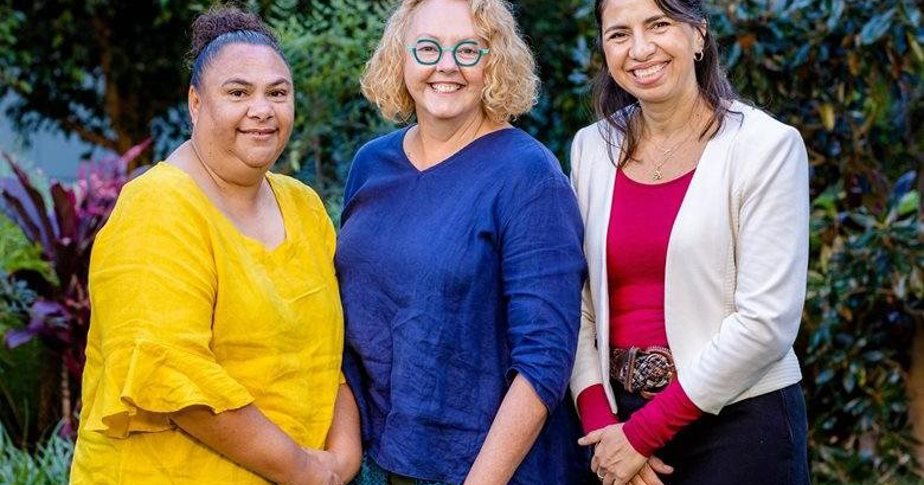
A ground-breaking study led by Mater Research and The University of Queensland will place health workers in Indigenous communities across Queensland and study the long-term wellbeing of 400 Aboriginal and Torres Strait Islander families thanks to a $4.69m grant from the National Health and Medical Research Council.
The pilot Indigenous Queensland Family Cohort (IQFC) study was launched at Mater’s South Brisbane health campus last year, but will now be extended to cover the Rockhampton, Townsville, Cairns communities and the Metro North HHS regions thanks to the major funding boost.
The study will identify First Peoples families during pregnancy and monitor the health and wellbeing of participating mothers, babies and fathers over five years.
As well as improving understanding of the serious health issues faced by First Peoples, the cohort team will also provide immediate interventions to improve the health of participants.
The study is being led by Associate Professor Kym Rae, Mater Research’s Principal Research Fellow for Indigenous Health, with support from The University of Queensland. The research team has been working with First Peoples organisations, consumers and health services to identify the key priorities for research.
“We have bought together the most experienced team in Australia to support the design and implementation of the IQFC,” Assoc Prof Rae said.
“We plan to improve our understanding of the drivers of long-term health for First Peoples, as well as to understand what can influence the development of disease.
“Importantly, the study is also a mechanism to undertake early diagnoses that allow us to support the participant in making decisions about appropriate healthcare interventions for parents and their children.
“Our aim is to provide both immediate interventions for participants and to inform long-term policy changes that will benefit First Peoples across the nation.”
The Indigenous health workers who will be at the frontline of the study will work with local community-controlled services, as well as Health and Hospital Services to ensure new families can access healthcare and support services as and when they are needed.
First Peoples communities have a higher risk of chronic health conditions, such as diabetes, heart disease and kidney disease, but often struggle to get the care they need. Babies also face a higher risk of being born prematurely and with low weight.
“In every community we have been working in, we have heard about a lack of health services staff,” Assoc Prof Rae said.
“This includes general practitioners, midwives, Aboriginal health workers, allied health staff and specialist services for children, including paediatricians.
“This project will allow families in need access to these healthcare services without going on lengthy waiting lists – which means better outcomes for kids in need.”
The National Aboriginal and Torres Strait Islander Health Plan has identified health research as a priority and it is expected that the Queensland study will harmonise with other cohorts in Victoria, Western Australian and the Northern Territory to provide national data to drive future policy.
“Our IQFC study is also unique, in that Torres Strait Islanders are a unique population of First Peoples who are exclusive to Queensland, so we will be collecting research data that other cohorts aren’t able to,” Assoc Prof Rae said.
IQFC Indigenous Research Assistant Loretta Weatherall is a proud Gamilaraay woman who has already spent more than 10 years delivering programs in Aboriginal communities – and she’s excited about the potential of the new, expanded cohort study.
“I’m passionate about my culture and about closing the gap – not just in health, but in everything,” Ms Weatherall said.
“My role is to recruit participants into the IQFC and follow them on their journey by collecting their samples, as well as staying in touch and building their trust.
“I really believe that we can improve outcomes in Queensland for Aboriginal and Torres Strait Islander families through this program.”
Pictured: Research Assistant Loretta Weatherall (left), Associate Professor Kym Rae and Research Officer Luciana Massi.



